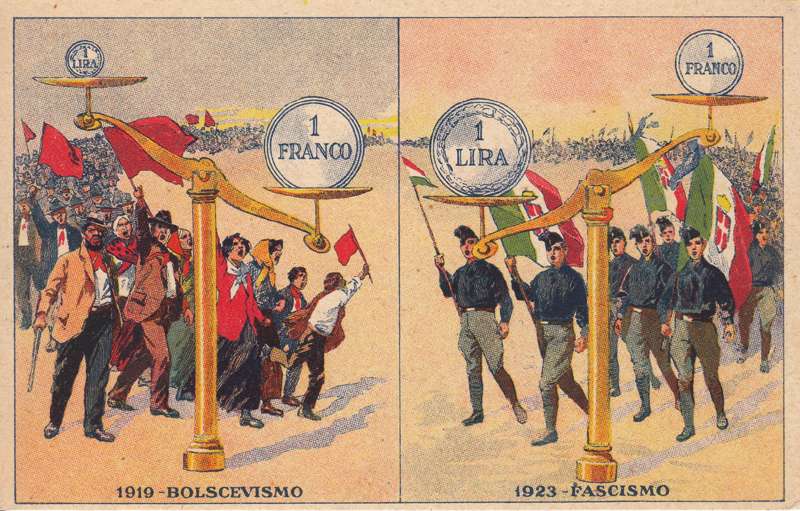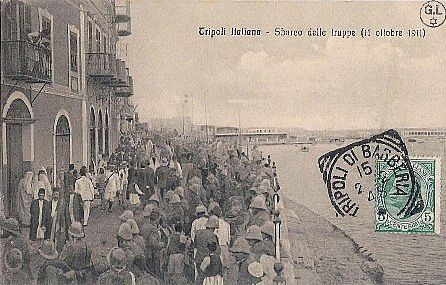|
Mare Nostrum
In the Roman Empire, () was a term that referred to the Mediterranean Sea. Meaning "Our Sea" in Latin, it denoted the body of water in the context of borders and policy; Ancient Rome, Rome remains the only state in history to have controlled the entire Mediterranean coast. The phrase would have been pronounced in Classical Latin, while it is pronounced in Ecclesiastical Latin. The concept of "Mare Nostrum" is noteworthy for having risen to political significance after the unification of Italy in the 19th century, particularly among Italian nationalism, Italian nationalists and Italian fascism, classical fascists, who attempted to revive the term with the connotation of Italy (and the Italian Empire shortly thereafter) being Succession of the Roman Empire, Rome's successor.Lowe (2002), p.34 Original usage The term ''Mare Nostrum'' originally was used by the Romans to refer to the Tyrrhenian Sea after their conquest of Sicily, Sardinia and Corsica during the Punic Wars with An ... [...More Info...] [...Related Items...] OR: [Wikipedia] [Google] [Baidu] |
Roman Empire Trajan 117AD
Roman or Romans most often refers to: *Rome, the capital city of Italy *Ancient Rome, Roman civilization from 8th century BC to 5th century AD *Roman people, the people of Roman civilization *Epistle to the Romans, shortened to Romans, a letter written by Paul, found in the New Testament of the Christian Bible *Ar-Rum (), the 30th sura of the Quran. Roman or Romans may also refer to: Arts and entertainment Music *Romans (band), a Japanese pop group *Roman (album), ''Roman'' (album), by Sound Horizon, 2006 *Roman (EP), ''Roman'' (EP), by Teen Top, 2011 *"Roman (My Dear Boy)", a 2004 single by Morning Musume Film and television *Film Roman, an American animation studio *Roman (film), ''Roman'' (film), a 2006 American suspense-horror film *Romans (2013 film), ''Romans'' (2013 film), an Indian Malayalam comedy film *Romans (2017 film), ''Romans'' (2017 film), a British drama film *The Romans (Doctor Who), ''The Romans'' (''Doctor Who''), a serial in British TV series People *Roman ... [...More Info...] [...Related Items...] OR: [Wikipedia] [Google] [Baidu] |
Punic Wars
The Punic Wars were a series of wars fought between the Roman Republic and the Ancient Carthage, Carthaginian Empire during the period 264 to 146BC. Three such wars took place, involving a total of forty-three years of warfare on both land and sea across the western Mediterranean region, and a four-year-long Mercenary War, revolt against Carthage. The First Punic War broke out on the Mediterranean island of Sicily in 264BC as a result of Rome's expansionary attitude combined with Carthage's proprietary approach to the island. At the start of the war Carthage was the dominant power of the western Mediterranean, with an extensive maritime empire (a thalassocracy), while Rome was a rapidly expanding power in Roman Italy, Italy, with a strong Roman army of the mid-Republic, army but no navy. The fighting took place primarily on Sicily and its surrounding waters, as well as in North Africa, Corsica and Sardinia. It lasted twenty-three years, until 241BC, when the Carthaginians were ... [...More Info...] [...Related Items...] OR: [Wikipedia] [Google] [Baidu] |
Adolf Hitler
Adolf Hitler (20 April 1889 – 30 April 1945) was an Austrian-born German politician who was the dictator of Nazi Germany from 1933 until Death of Adolf Hitler, his suicide in 1945. Adolf Hitler's rise to power, He rose to power as the leader of the Nazi Party, becoming Chancellor of Germany#Nazi Germany (1933–1945), the chancellor in 1933 and then taking the title of in 1934. His invasion of Poland on 1 September 1939 marked the start of the Second World War. He was closely involved in military operations throughout the war and was central to the perpetration of the Holocaust: the genocide of Holocaust victims, about six million Jews and millions of other victims. Hitler was born in Braunau am Inn in Austria-Hungary and moved to German Empire, Germany in 1913. He was decorated during his service in the German Army in the First World War, receiving the Iron Cross. In 1919 he joined the German Workers' Party (DAP), the precursor of the Nazi Party, and in 1921 was app ... [...More Info...] [...Related Items...] OR: [Wikipedia] [Google] [Baidu] |
Propaganda Of Fascist Italy
Propaganda in Fascist Italy was used by the National Fascist Party in the years leading up to and during Benito Mussolini's leadership of the Fascist Italy (1922–1943), Kingdom of Italy from 1922 to 1943, and was a crucial instrument for acquiring and maintaining power and the implementation of Italian fascism, Fascist policies. History Early Fascist Party (1919–1922) From the formation of the Italian Fasces of Combat ("Fasci Italiani di Combattimento") in 1919, the Fascists made heavy use of propaganda, including wikt:pageantry, pageantry and rhetoric, to inspire the nation into the unity that would obey. The party's main propaganda tool was ''Il Popolo d'Italia'' ("The People of Italy"), a pro-war political newspaper founded and directed by Benito Mussolini himself in 1914, which advocated for militarism, Italian irredentism, and the Italian entry into World War I, Italian intervention in the First World War. During those years, Fascist propaganda was mostly targeted ... [...More Info...] [...Related Items...] OR: [Wikipedia] [Google] [Baidu] |
Benito Mussolini
Benito Amilcare Andrea Mussolini (29 July 188328 April 1945) was an Italian politician and journalist who, upon assuming office as Prime Minister of Italy, Prime Minister, became the dictator of Fascist Italy from the March on Rome in 1922 until Fall of the Fascist regime in Italy, his overthrow in 1943. He was also of Italian fascism from the establishment of the Italian Fasces of Combat in 1919, until Death of Benito Mussolini, his summary execution in 1945. He founded and led the National Fascist Party (PNF). As a dictator and founder of fascism, Mussolini inspired the List of fascist movements, international spread of fascism during the interwar period. Mussolini was originally a socialist politician and journalist at the Avanti! (newspaper), ''Avanti!'' newspaper. In 1912, he became a member of the National Directorate of the Italian Socialist Party (PSI), but was expelled for advocating military intervention in World War I. In 1914, Mussolini founded a newspaper, ''Il P ... [...More Info...] [...Related Items...] OR: [Wikipedia] [Google] [Baidu] |
Emilio Lupi
{{disambiguation ...
Emilio may refer to: * Emilio Navaira, a Mexican-American singer often called "Emilio" * Emilio (given name) * ''Emilio'' (film), a 2008 film by Kim Jorgensen See also * Emílio (other) * Emilios (other) Emilios, or Aimilios, (Greek: Αιμίλιος) is a variant of the given names Emil (other), Emil, Emilio (other), Emilio and Emílio (other), Emílio, and may refer to: *Aimilios Veakis, Greek actor *Aimilios Papathanas ... [...More Info...] [...Related Items...] OR: [Wikipedia] [Google] [Baidu] |
Italian Tripolitania
Italian Tripolitania was an Italian colony, located in present-day western Libya, that existed from 1911 to 1934. It was part of the territory conquered from the Ottoman Empire after the Italo-Turkish War in 1911. Italian Tripolitania included the western northern half of Libya, with Tripoli as its main city. In 1934, it was unified with Italian Cyrenaica in the colony of Italian Libya. In 1939, Tripolitania was considered a part of the Kingdom of Italy's 4th Shore. Although resistance to the Italian colonisers was less prevalent in Tripolitania than Cyrenaica (which waged significant guerilla warfare), a resistance group did form the Tripolitanian Republic in 1918. Although it didn't succeed in setting up a republic, it demonstrated attempts to resist colonial control. The Italian colonisers set up various infrastructure projects, most notably roads and railways. Archeology was another important feature of the Italian presence in Tripolitania, as they focused efforts in excav ... [...More Info...] [...Related Items...] OR: [Wikipedia] [Google] [Baidu] |
Scramble For Africa
The Scramble for Africa was the invasion, conquest, and colonialism, colonisation of most of Africa by seven Western European powers driven by the Second Industrial Revolution during the late 19th century and early 20th century in the era of "New Imperialism": Belgian colonial empire, Belgium, French colonial empire, France, German colonial empire, Germany, British Empire, United Kingdom, Italian Empire, Italy, Portuguese Empire, Portugal and Spanish Empire, Spain. In 1870, 10% of the continent was formally under European control. By 1914, this figure had risen to almost 90%; the only states retaining sovereignty were Liberia, Ethiopian Empire, Ethiopia, Egba United Government, Egba, Sultanate of Aussa, Aussa, Senusiyya, Mbunda Kingdom, Mbunda, the Dervish State, the Darfur Sultanate, and the Ovambo people#History, Ovambo kingdoms, most of which were later conquered. The 1884 Berlin Conference regulated European colonisation and trade in Africa, and is seen as emblematic of t ... [...More Info...] [...Related Items...] OR: [Wikipedia] [Google] [Baidu] |
1912 Map - Le Nuove Province Italiane - Tripolitania E Cirenaica
Year 191 ( CXCI) was a common year starting on Friday of the Julian calendar. At the time, it was known as the Year of the Consulship of Apronianus and Bradua (or, less frequently, year 944 ''Ab urbe condita''). The denomination 191 for this year has been used since the early medieval period, when the Anno Domini calendar era became the prevalent method in Europe for naming years. Events By place Parthia * King Vologases IV of Parthia dies after a 44-year reign, and is succeeded by his son Vologases V. China * A coalition of Chinese warlords from the east of Hangu Pass launches a punitive campaign against the warlord Dong Zhuo, who seized control of the central government in 189, and held the figurehead Emperor Xian hostage. After suffering some defeats against the coalition forces, Dong Zhuo forcefully relocates the imperial capital from Luoyang to Chang'an. Before leaving, Dong Zhuo orders his troops to loot the tombs of the Han emperors, and then destroy Luoyang b ... [...More Info...] [...Related Items...] OR: [Wikipedia] [Google] [Baidu] |
Fall Of Rome
The fall of the Western Roman Empire, also called the fall of the Roman Empire or the fall of Rome, was the loss of central political control in the Western Roman Empire, a process in which the Empire failed to enforce its rule, and its vast territory was divided among several successor polities. The Roman Empire lost the strengths that had allowed it to exercise effective control over its Western provinces; modern historians posit factors including the effectiveness and numbers of the army, the health and numbers of the Roman population, the strength of the economy, the competence of the emperors, the internal struggles for power, the religious changes of the period, and the efficiency of the civil administration. Increasing pressure from invading peoples outside Roman culture also contributed greatly to the collapse. Climatic changes and both endemic and epidemic disease drove many of these immediate factors. The reasons for the collapse are major subjects of the historiog ... [...More Info...] [...Related Items...] OR: [Wikipedia] [Google] [Baidu] |
Late Latin
Late Latin is the scholarly name for the form of Literary Latin of late antiquity.Roberts (1996), p. 537. English dictionary definitions of Late Latin date this period from the 3rd to 6th centuries CE, and continuing into the 7th century in the Iberian Peninsula. This somewhat ambiguously defined version of Latin was used between the eras of Classical Latin and Medieval Latin. Scholars do not agree exactly when Classical Latin should end or Medieval Latin should begin. Being a written language, Late Latin is not the same as Vulgar Latin, or more specifically, the spoken Latin of the post-Imperial period. The latter served as the ancestor of the Romance languages. Although Late Latin reflects an upsurge in the use of Vulgar Latin vocabulary and constructs, it remains largely classical in its overall features, depending on the author who uses it. Some Late Latin writings are more literary and classical, but others are more inclined to the vernacular. As such it is an important ... [...More Info...] [...Related Items...] OR: [Wikipedia] [Google] [Baidu] |






